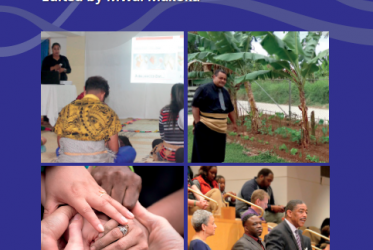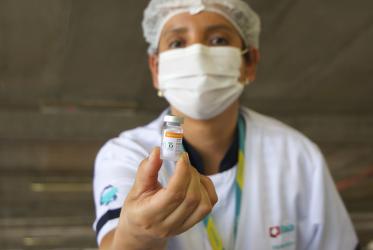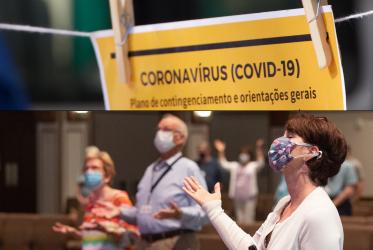A web meeting co-organised by Globethics.net and the Cyberlaw University on 12 May focused on “Cyber Ethical Challenges of COVID-19," drawing 100 participants from four continents.
The meeting addressed critical ethical challenges related to emerging security, as well as social and technical issues posed by COVID-19.
The web meeting was organised in light of the fact that during the COVID-19 pandemic the Internet is enabling vital services to provide information and to communicate and manage emergencies.
At the same time, cyber ethical challenges are emerging, including threats to cybersecurity, increases in cybercrime, governments collecting more personal data and information than before, voluntary or compulsory tracing and the deepening of inequalities in education and in work for those without Internet access.
"As a cyber hospital we store the health data of many customers in a database…we do not have the right to use these customers' data… Chinese society is increasingly concerned about the protection of the privacy of individuals,” observed Cui Wantian, founder of Bringspring Company and former Globethics.net board member. His presentation was based on his experience at Bringspring, which provides over 3,000 hospitals and medical care institutions with scientific products and services in China and other countries.
Another concern that he flagged was fake news that "has misled a lot of people, with extremely serious consequences. There is a communication vacuum that needs to be addressed. So far I haven't seen a good solution for it,” he said.
Moderator and presenter Christoph Stückelberger, Globethics.net president and founder, stated: ”The perception of the COVID-19 virus is different across cultures… there is a distinction between discipline versus freedom cultures,” referring to the comparison of different leadership, strategy and results in response to the pandemic around the world. He asserted a cultural influence in the development and use of tracing apps in the level of control used and the level of privacy tolerated, citing findings of the Edelman Trust Barometer Special Report of 5 May.
In the report, globally on average 61 percent of respondents were willing to give up their personal health and location data to help contain the spread of the virus with the percentage ranging from 45 percent in France to 91 percent in China.
Stückelberger concluded his presentation with a focus on equality of access to the Internet during the pandemic with the need to increase support for the estimated 40 percent of students without access and unable to continue their education.
Pavan Duggal, honorary chancellor of Cyberlaw University, tackled ethical challenges of cyber crime against a background of increasing cyber security breaches targeting companies, medical and educational institutions and individuals. With the COVID-19 pandemic vulnerability augmented by the massive move to online meetings, homeworking and schooling, Duggal said: "The use of tracing apps to intercept and monitor has impacts on freedom of movement when citizens are obliged to download apps.”
Duggal added: "When one talks about the intersection between cyber security and ethics, privacy plays an important role. COVID-19 is a game changer… there will be a new world order post COVID-19 that will have an impact on digital liberties.”
Learn more about Globethics.net
Coping with the Coronavirus - WCC landing page





